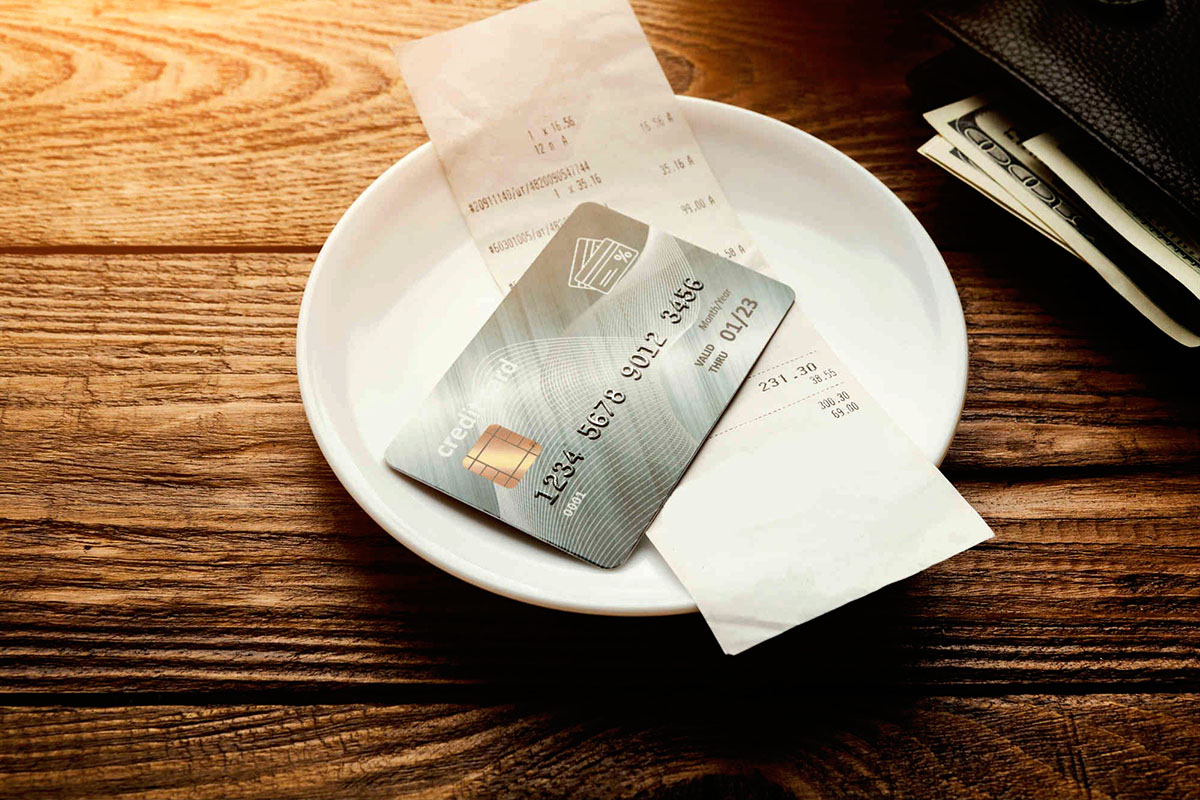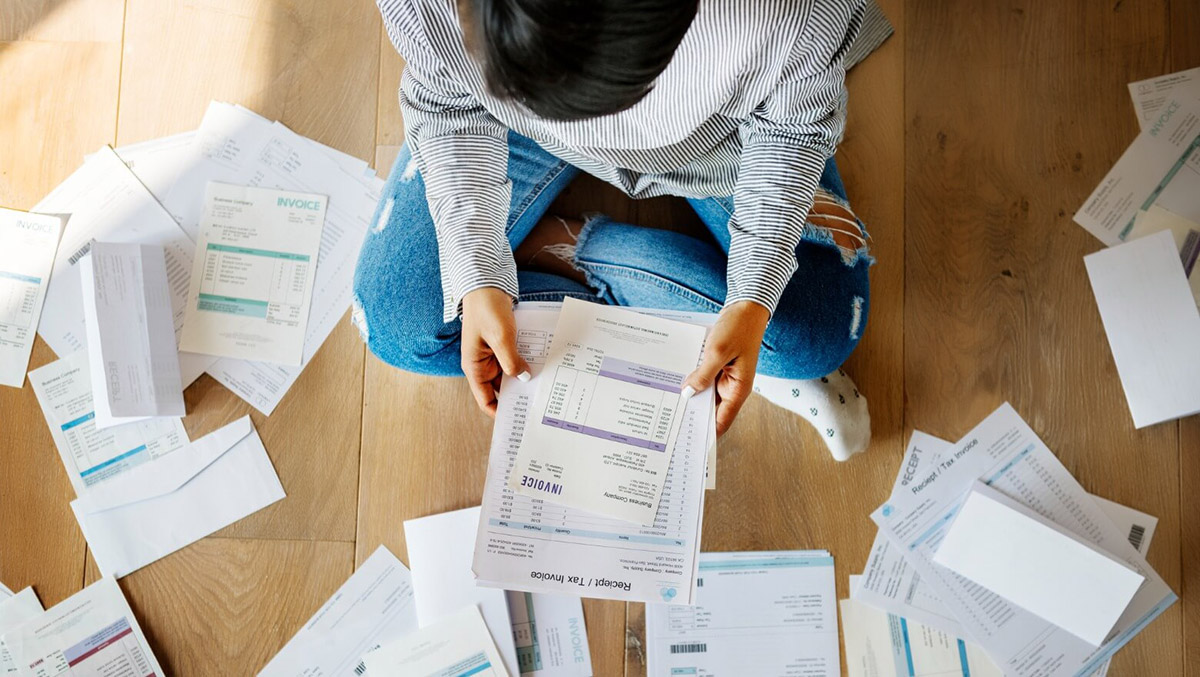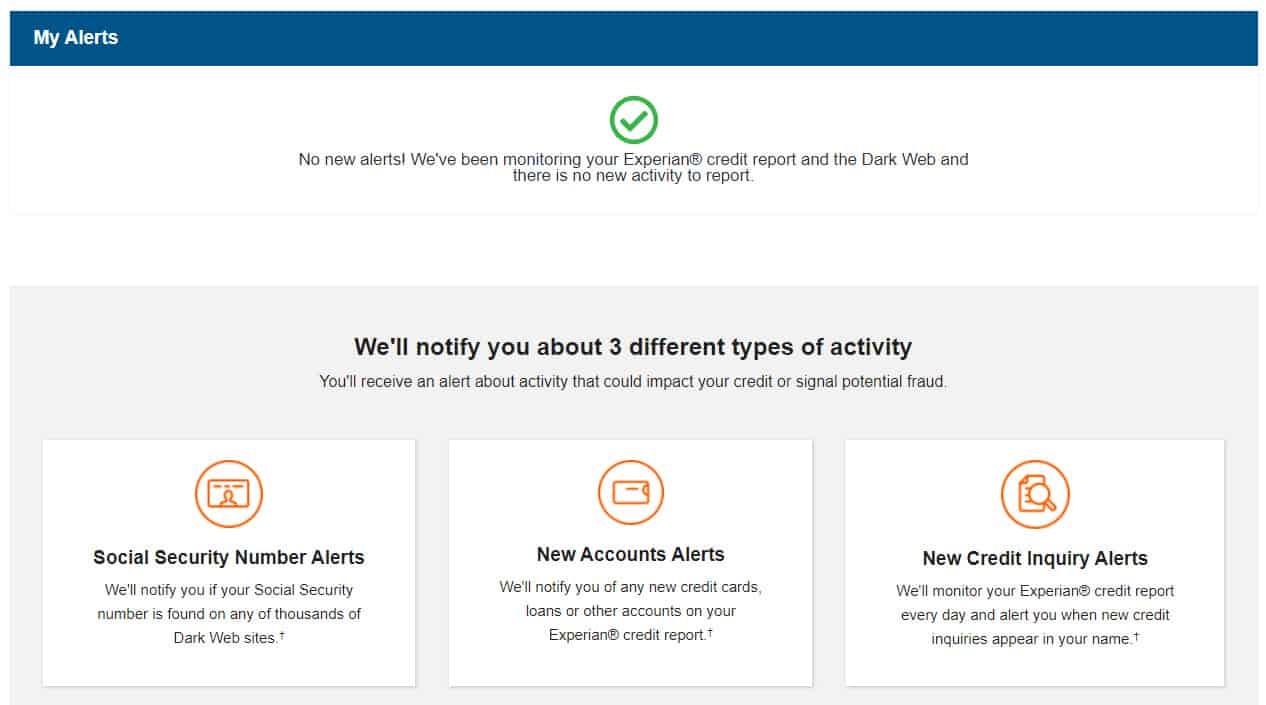

Finance
How Long To Keep Credit Card Receipts
Published: November 7, 2023
Looking for answers on how long to keep credit card receipts? Our finance experts provide guidance, helping you stay organized and informed.
(Many of the links in this article redirect to a specific reviewed product. Your purchase of these products through affiliate links helps to generate commission for LiveWell, at no extra cost. Learn more)
Table of Contents
Introduction
Keeping track of your credit card receipts might not seem like a top priority, but it’s a practice that can have significant benefits and ensure your financial well-being. Credit card receipts serve as a crucial record of your purchases and can be helpful in various ways, such as verifying charges, tracking expenses, and resolving billing disputes. While it may be tempting to toss those small slips of paper, it’s important to understand why keeping credit card receipts is essential.
In this article, we’ll explore the importance of maintaining credit card receipts, the legal requirements surrounding their retention, the recommended duration for keeping them, and how to effectively organize and store them. We’ll also discuss the safe disposal of credit card receipts and the benefits that come with maintaining a meticulously documented record of your purchases.
Managing your finances responsibly involves more than just keeping track of your bank statements and monitoring your credit score. By understanding the value of credit card receipts and implementing good record-keeping practices, you can gain a better understanding of your spending habits, protect yourself against fraud, and take control of your financial future.
Importance of Keeping Credit Card Receipts
While credit card receipts may seem insignificant at first glance, they provide valuable information that can be crucial in multiple situations. Here are some key reasons why it is important to keep your credit card receipts:
- Verifying charges: Credit card receipts act as a physical proof of your transactions. By comparing your receipts with your monthly credit card statement, you can ensure that all charges are accurate and identify any unauthorized or fraudulent activities.
- Tracking expenses: Keeping credit card receipts enables you to monitor and categorize your expenses. By reviewing your receipts, you can gain insight into your spending habits, identify areas where you may be overspending, and make necessary adjustments to get on track with your budget.
- Resolving billing disputes: In the event of a dispute with a merchant or a discrepancy in billing, having the original credit card receipt can support your case. It provides evidence of the transaction, making it easier to resolve the issue with the merchant or credit card issuer.
- Proof of purchase: Credit card receipts serve as proof of purchase, which can be essential when returning or exchanging items. Some stores may require the original receipt to process a return, especially for high-value items or when seeking a refund or store credit.
- Warranty claims and insurance: Many purchases come with warranties or insurance coverage. Having the credit card receipt can help facilitate warranty claims or insurance coverage, ensuring that you can take advantage of these benefits if necessary.
By recognizing the importance of keeping credit card receipts, you can take control over your financial transactions and protect yourself from potential fraud or disputes. The next section will explore the legal requirements surrounding the retention of credit card receipts, providing further insight into the significance of this practice.
Legal Requirements for Keeping Credit Card Receipts
When it comes to the retention of credit card receipts, it’s important to understand the legal requirements that may apply. While specific regulations can vary by jurisdiction, there are general guidelines to keep in mind:
- Consumer protection laws: Many consumer protection laws, such as the Fair Credit Billing Act (FCBA) in the United States, require credit card issuers to provide consumers with the right to dispute unauthorized charges. To exercise this right, consumers often need to provide evidence of the transaction, which typically includes the credit card receipt.
- Tax and accounting purposes: Credit card receipts can be valuable for tax and accounting purposes. They provide documentation of deductible business expenses, which may be required when filing tax returns or being audited by tax authorities.
- Warranty and product claims: Some warranties or product claims may require the original credit card receipt as proof of purchase. Failure to provide this documentation could result in denial of warranty coverage or claims.
- Legal actions: In the event of legal actions, such as disputes with merchants or credit card chargebacks, having credit card receipts can be crucial for supporting your case and providing evidence.
It’s important to consult with local laws and regulations to understand the specific requirements applicable to your jurisdiction. In some cases, there may be limitations on the retention period or additional obligations for businesses in terms of storing credit card receipts.
Now that you understand the legal aspect of keeping credit card receipts, let’s move on to the recommended retention period for maintaining these records.
Recommended Retention Period for Credit Card Receipts
While there is no one-size-fits-all answer to how long you should keep your credit card receipts, it’s generally advised to retain them for a certain period of time. Here are some recommendations to consider:
- Short-term retention: It is advisable to keep your credit card receipts for a short period of time, typically around 30 days. This allows you to verify charges, reconcile your transactions with your credit card statement, and address any immediate billing disputes.
- Medium-term retention: For non-disputed transactions, it is recommended to retain credit card receipts for at least three to six months. This timeframe provides a buffer in case you need to return items, claim warranties, or encounter any delayed billing issues.
- Long-term retention: Certain credit card receipts may need to be kept for a more extended period, especially for significant purchases or items with long warranty or insurance coverage. It is advisable to retain these receipts for at least one to three years.
- Exceptions: There are instances where you may want to keep credit card receipts indefinitely. This includes receipts for major purchases, such as appliances, electronics, or jewelry, as well as receipts for tax-related deductions or business expenses.
It’s important to note that these are general guidelines, and you should assess your specific situation and needs when determining how long to retain credit card receipts. Additionally, make sure to consider any legal obligations or requirements that may apply in your jurisdiction.
Now that we’ve covered the recommended retention period for credit card receipts, let’s explore effective ways to organize and store them.
Organizing and Storing Credit Card Receipts
Properly organizing and storing your credit card receipts is essential for easy access and efficient record-keeping. Here are some effective strategies to consider:
- Create a dedicated system: Designate a specific location or folder for storing your credit card receipts. This can be a physical folder, an electronic folder on your computer, or a mobile app specifically designed for expense tracking.
- Categorize receipts: Organize your credit card receipts into categories that make sense for your spending habits. For example, you could separate receipts by month, expense type (e.g., groceries, dining out, entertainment), or by specific projects if you use your credit card for business expenses.
- Digitize receipts: Consider scanning or taking photos of your credit card receipts and storing them electronically. This reduces clutter and ensures that your receipts are backed up and easily accessible even if the physical copies are lost or damaged. There are numerous apps available that can help you capture and organize digital receipts.
- Use online banking tools: Many credit card issuers provide online banking tools that allow you to view and download your monthly statements, including transaction details. Take advantage of these tools to access and review your transactions electronically instead of relying solely on paper receipts.
- Consider cloud storage: If you choose to store your credit card receipts digitally, consider using secure cloud storage services. This provides an extra layer of protection and allows you to access your receipts from various devices.
- Label and date receipts: To make it easier to search and track your receipts, clearly label them with relevant information, such as the date, merchant name, and amount. This will streamline the process of finding specific receipts when needed.
- Regularly review and reconcile: Set aside time on a regular basis to review your credit card receipts, reconcile them with your monthly statements, and address any discrepancies or issues promptly.
By implementing these organization and storage techniques, you can ensure that your credit card receipts are well-managed, easily retrievable, and effectively support your financial record-keeping.
Next, we’ll discuss the safe disposal of credit card receipts once they are no longer needed.
Safe Disposal of Credit Card Receipts
Once you have retained credit card receipts for the recommended duration and no longer need them, it’s important to dispose of them properly to protect your personal and financial information. Here are some tips for the safe disposal of credit card receipts:
- Shred or destroy physical receipts: To prevent unauthorized access to your sensitive information, use a cross-cut shredder or tear up paper receipts into small pieces before discarding them. This helps ensure that important details like credit card numbers, names, and purchase information cannot be easily reconstructed.
- Securely delete digital receipts: If you have digitized your credit card receipts and stored them digitally, make sure to securely delete any electronic copies when you no longer need them. Use appropriate file deletion methods or software to ensure that the information cannot be recovered.
- Be cautious with digital storage: If you choose to store credit card receipts digitally, take necessary precautions to protect them from unauthorized access. Use strong passwords, enable two-factor authentication where possible, and consider encrypting your digital storage to add an extra layer of security.
- Dispose of receipts in multiple locations: Instead of throwing away all your credit card receipts in one place, consider disposing of them in different locations. This prevents someone from easily piecing together the receipts if they happen to find one or a few of them.
- Protect against dumpster diving: When disposing of physical receipts, make sure to dispose of them in a secure manner. Place them in a trash bag or mix them with other non-sensitive materials to deter potential thieves engaged in “dumpster diving” from accessing your information.
By following these precautions, you can minimize the risk of identity theft, fraud, or unauthorized use of your credit card information when disposing of your credit card receipts.
Now that we’ve discussed the safe disposal of credit card receipts, let’s move on to the benefits of maintaining a well-documented record of your purchases.
Benefits of Keeping Credit Card Receipts
While it may require a little effort to keep and organize your credit card receipts, doing so offers numerous benefits that can positively impact your financial well-being. Here are some key advantages of maintaining a well-documented record of your purchases:
- Expense tracking and budgeting: By keeping credit card receipts, you can track and monitor your spending habits more effectively. It helps you gain a clear understanding of where your money is going, identify areas where you can cut back, and stay on track with your budgeting goals.
- Proof of purchase: Credit card receipts serve as proof of purchase for items you buy. This can be important for warranty claims or returning items to the store. With your receipts, you have documentation to support your claim, making the process smoother and increasing the chances of a successful return or exchange.
- Facilitates tax deductions and auditing: For business owners or those claiming deductible expenses, credit card receipts are crucial for tax purposes. They serve as evidence of your business-related expenses and can be invaluable during tax filings or audits.
- Protection against billing disputes: In the event of a billing dispute with a merchant, credit card receipts can be your strongest defense. They provide concrete evidence of the transaction and assist in resolving any discrepancies or unauthorized charges quickly and efficiently.
- Financial planning and goal setting: By analyzing your credit card receipts, you can gain insights into your spending patterns and make informed decisions about your financial goals. Whether you want to save for a down payment on a house, pay off debt, or invest for the future, understanding your spending habits is essential for effective financial planning.
- Fraud detection and prevention: Keeping credit card receipts can help you identify suspicious or unauthorized charges on your account. Regularly reviewing your receipts and comparing them to your credit card statements allows you to catch any fraudulent activity early and take immediate action to protect your financial security.
By recognizing the benefits of keeping credit card receipts and incorporating good record-keeping habits into your financial routine, you can gain better control over your finances and make more informed financial decisions.
Now, let’s conclude our discussion on the importance of credit card receipt retention.
Conclusion
Keeping credit card receipts might seem like a small and insignificant task, but it holds immense importance in maintaining your financial well-being. By understanding why it is essential to retain and organize your credit card receipts, you can reap numerous benefits.
Credit card receipts serve as a critical record of your purchases, allowing you to verify charges, track expenses, and resolve billing disputes more effectively. They also act as proof of purchase, aiding in warranty claims and facilitating returns or exchanges. Additionally, credit card receipts can play a vital role in tax deductions, financial planning, and fraud prevention.
Remember to familiarize yourself with any legal requirements surrounding the retention of credit card receipts in your jurisdiction. Establish a system to organize and store your receipts, whether physically or digitally, ensuring easy access and review when needed. Safely dispose of credit card receipts once their retention period is over, taking precautions to protect your personal and financial information.
By embracing the practice of keeping credit card receipts, you can gain better control over your finances, make more informed financial decisions, and protect yourself against potential disputes or fraudulent activities.
So, the next time you receive a credit card receipt, think twice before tossing it away. Take a moment to recognize its value and incorporate it into your record-keeping routine. Your financial future will thank you for it.














